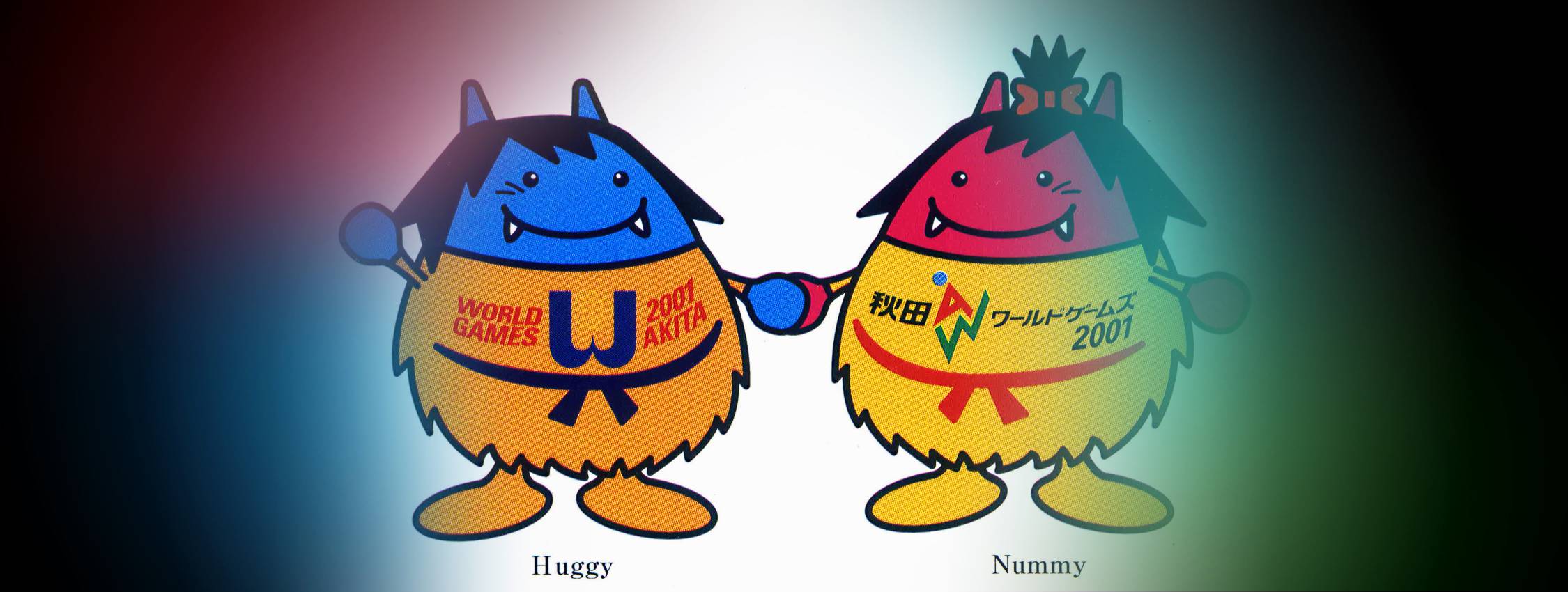First time in Asia
The 6th edition of The World Games took place from 16 to 26 August, 2001 in the port city of Akita in north-western Japan. 27 sports (22 in the official program plus five invitational sports) thrilled the city of about 310,000 inhabitants during the ten days of competition. After the premiere in the USA and four editions in Europe, The World Games took place for the first time in Asia.
A total of 127,000 spectators attended the events. 1968 athletes competed in the 157 medals events in the official program for the gold medal of The World Games. A total of 13 titles were awarded in the 5 invitational sports. Competitors from 80 nations took part in TWG 2001 The most successful nation within the official program was Russia with 24 gold medals 15 silver and 5 bronze, followed in the medal tally by the USA with 14/8/8 and Germany with 10/10/12 medals. The host country was ranked seventh with 9/6/10 medals.
Russia dominated mainly in the Gymnastics disciplines and collected 12 of its 24 gold medals in this sport alone. Accordingly, the most successful individual athlete came from Russia and was a gymnastics athlete: Irina Tchachina, who won silver in rhythmic gymnastics at the Olympic Games in Athens, secured all four gold medals in the individual disciplines at the Akita Games. The most successful male athlete was Evgueni Skorjenko (Russia) with three gold medals in Finswimming.
Seven Debuts on the Programme
The individual disciplines in Rhythmic Sports Gymnastics were part of the official competition program of The World Games for the first time. Billiard, Flying Disc and Orienteering also made their debut. Within the invitational sports program, Sumo and Beach Handball premiered, as well as Tug of War indoor as an all-female discipline. Sumo and Tug of War Indoor became part of the official program from 2005 (Duisburg/Germany) on. Beach Handball made this leap into program in 2013 in Cali, Colombia. The discipline Roller Hockey had its last appearance in Akita. The international federation replaced it by Inline Hockey in 2005.
998 media representatives reported on the competitions at the 21 venues. The Japanese Broadcasting Corporation NHK produced the television pictures of the games. For the first time all sports during The World Games were covered by the TV production. The spectacular opening ceremony with colorful show highlights caused a sensation on 16 August 2001 at Yabase Stadium. The opening of the Games was presented by Atsuko Toyama, Minister of Education, Culture, Sports, Science and Technology of Japan. The closing ceremony was also originally planned for Yabase Stadium. Due to unfavorable weather conditions, the organizers decided to move to the Yuwa Skydome for the farewell show on 26. August 2001.
An extraordinary event challenged the organizers: a typhoon that raged over the city for two days during the Games forced to either start many competitions later or to move them to other venues. The good news: no event had to be cancelled.
For the first time, some National Olympic Committees organized hotel accommodation for their athletes, beyond the period of hosting by the IWGA. This is to be seen as a sign for the further development of the Games.
The Invention of The World Games Plaza
The main innovation was the organization of The World Games plaza in the center of the city. The daily cultural festival made it possible for athletes, fans and residents of Akita to meet and to celebrate the event. The premiere proved to be so successful that it has since become part of The World Games experience.
The mascots of the World Games 2001 Akita are based on Namahage, fearsome ogres from folk myths, was named Huggy and the other one Nummy.
One of the legacies of the games is connected to the Japanese World Games Association. It was established in 1985 as the Japan World Games Commission by domestic world games related sports associations. After being reorganized into the Japan World Games Association (JWGA) in December 1991, the association received non-profit organization (NPO) corporate status in June 2001 and continues to promote the World Games sports in Japan. Fumio Morooka, member of JWGA, served on the board of directors of IWGA from 2014 to 2018.
